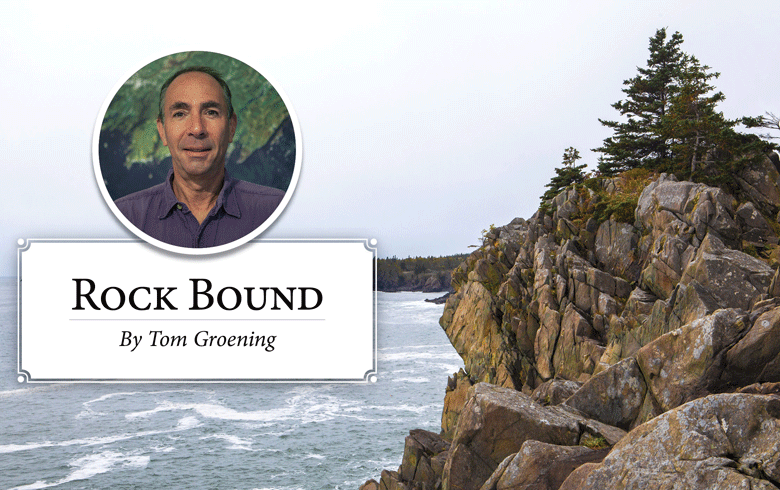You may have read the now-infamous New York Post travelogue about Maine, or perhaps you read or saw the headlines and reactions it generated here. Long story short, a woman from the Post—who, she emphasized, has traveled EVERYWHERE—came to Maine and found it underdressed and overweight.
I’m not sure if the piece made it into print in New York or if it was an online only thing—I can’t be bothered to check—but it was sloppy, bereft of detail, inaccurate, and, as a former journalism colleague put it, just plain lazy. It was a lob floating so slowly over the volleyball net that even the most gravity-bound of us Mainers could spike it through the imagined face of its creator.
I shared the column in The Working Waterfront’s E-Weekly and received responses ranging from “Lighten up” to “Didn’t you get that it was satire?”
Yawn. Either way, yawn.
We never break a sweat at work. We stop and chat with neighbors on the streets because we have no deadlines or pressures
What tickled my imagination enough to engage was its place in the long history of people from south of here using Maine as a signifier of… something. The late Caskie Stinnett, who summered on a small island in Casco Bay and wrote a column for Down East magazine for many years, gave the mighty New York Times a smack down in the mid-1980s for a sin similar to, though more subtle than that of its New York cousin, the Post. The Times indulged in full-blown reporting on the ending of the telephone technology that required calling an operator to make a call. The last outpost in Maine—and perhaps all of the Northeast—for the “Hey, Mildred, can you connect me with Miller’s Grocery Store?” was in Bryant Pond, up near Bethel.
Ironically, Bryant Pond is where the bowtie-wearing Fox News pundit Tucker Carlson bought the old Grange hall and turned it into a studio—paneled in knotty pine—from which to broadcast his conspiracy theories and turbo-spun news to a waiting world. So I guess the tin can and strings have since been replaced up Bryant Pond way.
When and how Maine raises the interest of the national media is worth paying attention to, I think. Doing so may generate a knowing chuckle at our expense or a cringe.
Speaking of western Maine, I’m also reminded of the annual “national” wife-carrying championship held at the Sunday River ski area. Images from the “competition” would fill-out a video-depleted Sunday morning news show, and the hosts’ tone often suggested their belief that those wacky Mainers were about a century behind the times, missing that the whole event was a goof, a way of us laughing at ourselves.
And I guess that’s the signifier Maine often holds for national media—that of anachronism. And really, all of rural America is poorly understood by news media and TV and film.
We never break a sweat at work. We stop and chat with neighbors on the streets because we have no deadlines or pressures. Life is simple and easy here. Isn’t that your reality?
Another memory jogged loose by the Post piece was when Democratic presidential candidate Jesse Jackson finished a close second to Michael Dukakis in the Maine primary in 1988. NBC News reporter Fred Francis, doing a stand-up from Boston, explained the surprisingly strong showing by Jackson came because “Maine is a very green state.” Huh? Sure, we have a lot of trees, but it was February, so… Again, lazy.
When we’re not carrying our wives and wearing wrinkled L.L. Bean clothing, we work hard to make a living. Our economy, even in the 21st century, leans seasonal. The New York Post should send a reporter up here in February to rent a cottage heated by a woodstove.
Our August issue featured an essay well-worth reading that reflected on the image of Maine in such divergent sources as the novel and film Peyton Place and the TV series Murder, She Wrote. Written by Ardis Cameron, a University of Southern Maine professor emeritus who is an expert on women’s labor issues and who has written about Peyton Place, it noted that when presented with one facet of life here—generational poverty and sharp class divides—Hollywood opted to white-wash those realities in the movie version.
Along with our essay (available on our website), Peyton Place the novel is still worth reading and still packs a punch.
The flavor of life here s very much to our taste. But it’s a complex serving, savory and sweet and sometimes bitter. A diet of lobster rolls and whoopie pies doesn’t represent it.
Tom Groening is editor of The Working Waterfront. He can be reached at tgroening@islandinstitute.org.





